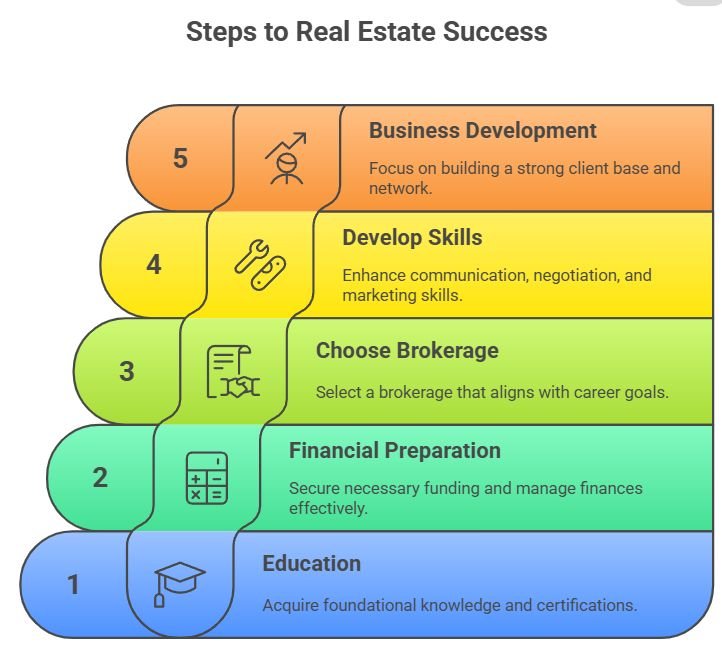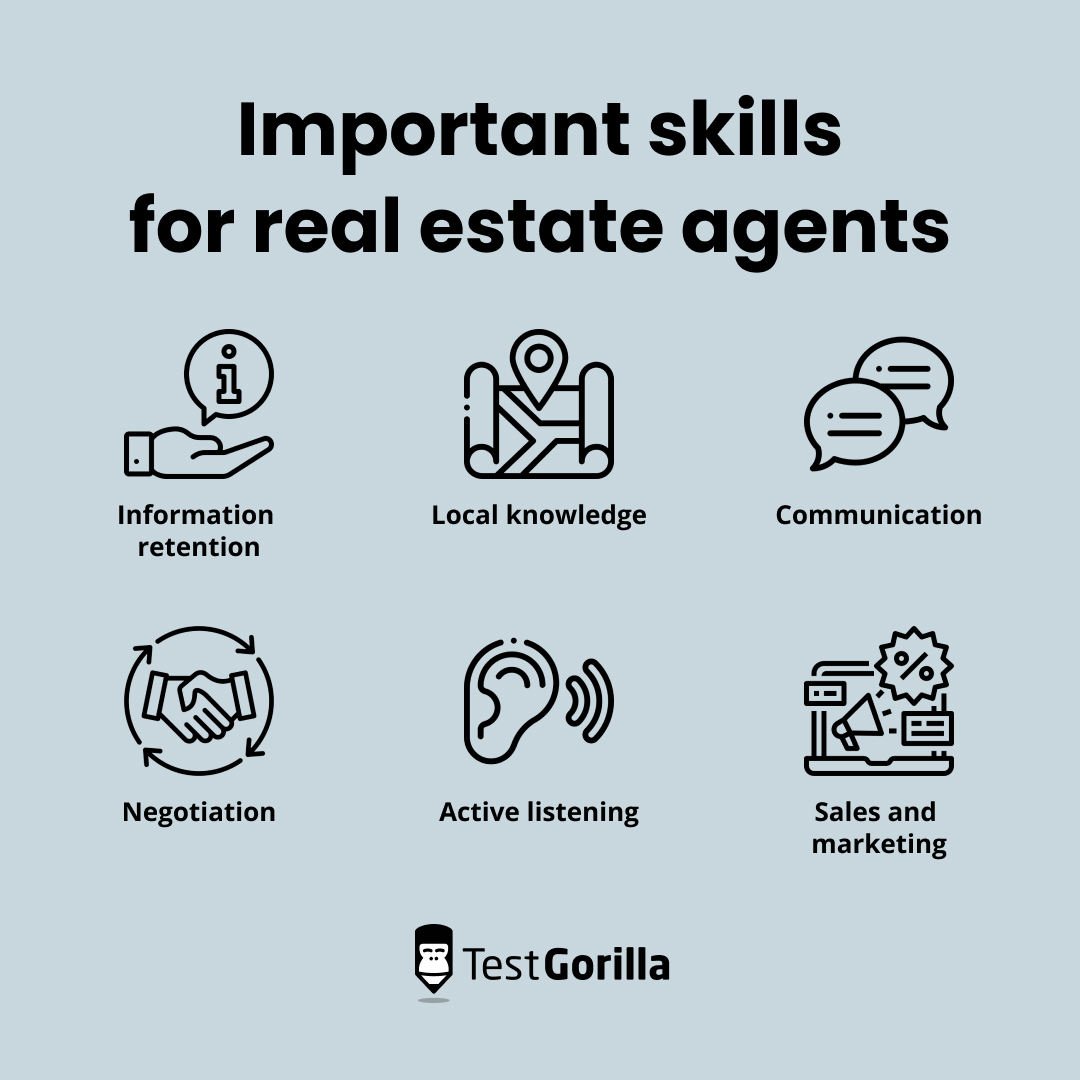Becoming a successful real estate dealer is a rewarding career path that demands a unique blend of skills, dedication, and strategic thinking. While the licensing exam provides the foundational knowledge, true success in this dynamic industry hinges on continuous learning, robust relationship building, and an unwavering commitment to client satisfaction. This comprehensive guide outlines the essential steps, qualities, and strategies necessary to thrive as a real estate professional.
I. Laying the Foundation: Getting Started in Real Estate

The journey to becoming a successful real estate dealer begins with crucial preparatory steps that set the stage for your career.
1. Understanding Licensing Requirements
The first and most fundamental step is to meet all local and state licensing requirements. This typically involves completing pre-licensing education and passing a comprehensive exam. While passing the exam is a significant achievement, it is merely the gateway to the profession; the real learning begins once you start practicing [1, 3].
2. Choosing the Right Brokerage
Selecting an appropriate brokerage is paramount, especially for new agents. A good brokerage offers strong training programs, mentorship opportunities, and a supportive culture. It is advisable to research various brokerages, interview potential mentors, and ensure their values and support systems align with your career goals [1, 3]. The right environment can significantly accelerate your growth and confidence.
3. Financial Preparedness
Real estate often involves an irregular income stream, particularly in the initial months. It is prudent to have sufficient savings to cover living expenses and business startup costs for several months. Essential initial investments typically include a mobile phone, a reliable car, a computer, and internet access. Being financially prepared allows you to focus on building your business without immediate financial pressure [1].
4. Finding a Mentor
Guidance from an experienced agent can be invaluable. A mentor provides insider tips, real-world advice, and step-by-step guidance that textbooks cannot offer. Many brokerages facilitate formal mentorship programs, but networking at industry events can also lead to beneficial mentor-mentee relationships. Shadowing an experienced agent during open houses or negotiations offers practical learning opportunities [3, 4].
II. Cultivating Essential Skills and Qualities
Success in real estate is deeply rooted in personal attributes and honed professional skills. Developing these qualities will distinguish you in a competitive market.
1. Steely Determination and Self-Motivation
Real estate demands a relentless and stubborn resolve to overcome obstacles and ensure client satisfaction. As an independent contractor, you are essentially running your own business, requiring immense self-motivation. Your success will depend entirely on your initiative, work ethic, and ability to drive yourself forward [2].
2. Strong Communication and Negotiation Skills
Effective communication is the cornerstone of every successful transaction. This includes active listening, clear articulation, and adapting your communication style to suit client preferences. Equally important are robust negotiation skills, which are critical for discussing listing prices, selling prices, and even your own commission. Continuous practice and learning in negotiation are vital [1, 2, 3].
3. Integrity and Trustworthiness
Maintaining high ethical standards is non-negotiable. Building trust with clients and securing referrals hinges on your principled approach and commitment to doing what is right, especially when dealing with significant financial transactions. REALTORS®, for instance, adhere to an even higher ethical standard [2, 3]. Prioritizing ethics over profits builds a solid reputation and ensures a consistent stream of referrals.
4. Tech Savviness and Attention to Detail
In today’s digital age, proficiency with computers and the internet is a must. From navigating online listings to utilizing CRM systems, tech savviness ensures you remain competitive. Furthermore, a sharp eye for detail is necessary for comparing housing prices, reviewing complex contracts, and understanding intricate client wish lists. The ‘little stuff’ often makes the ‘big picture’ possible [2].
5. Winning Personality and Boundless Enthusiasm
A friendly and amiable demeanor helps attract clients and build confidence. Real estate is a people-oriented career where a pleasant personality can be a significant advantage. Coupled with boundless enthusiasm, these traits enable you to endure long hours, deal with challenging situations, and navigate the demanding nature of the job [2].
6. Problem-Solving Skills and Adaptability
Real estate agents must be adept at solving client problems, which often involve unique variations like budget constraints or tight timelines. Creative and unconventional solutions may be required. The market is unpredictable, so flexibility and adaptability to market shifts, regulatory changes, or unexpected cancellations are essential [2, 3].
7. Dedication to Professional Appearance
Your professional appearance plays a role in how clients perceive you. Dressing impeccably builds confidence and creates a positive first impression, as you are not only selling properties but also your own image [2, 3].
III. Building Your Business: Strategies for Growth
Beyond personal qualities, strategic business practices are crucial for sustained success in real estate.
1. Networking and Lead Generation
Building and maintaining connections is fundamental. Actively participate in local chambers of commerce, networking groups, real estate meetups, expos, and online communities. Leverage social media to create engaging content and nurture relationships with past clients and colleagues. Diversify your lead generation strategies across multiple ‘pillars’ (e.g., referrals, past clients, friends/family) but avoid overextending, as consistency is key [1, 2, 3].
2. Marketing and Personal Branding
Develop a strong digital presence by creating a professional website that highlights your services, client testimonials, and current listings. Utilize targeted advertising on platforms like Google Ads or social media (Facebook, Twitter) to reach potential buyers and sellers in your area. Craft compelling listings with high-quality photos and well-written descriptions. Building a personal brand involves identifying your niche, developing consistency in your brand voice, and showing authenticity to connect with clients [1, 3].
3. Customer-Centric Approach and Referral Generation
Focus on understanding and delivering what customers truly want – details and answers. Continuously build expertise through continuing education and professional development. Actively ask friends, family, and past clients for referrals, as they are the ‘bread and butter’ of the industry. Go above and beyond in service to encourage positive word-of-mouth and always express gratitude to referral sources [1].
4. Leveraging Open Houses and Consistent Follow-up
Open houses are excellent lead generation tools. Prepare thoroughly, make them inviting, and engage visitors to collect contact information for follow-up. Consistent follow-up is crucial for converting prospects; contact clients within two days of property showings and continue until a decision is made. Similarly, follow up with open house leads shortly after the event [1, 3].
5. Embracing Non-Traditional Hours
Clients typically shop for homes during their free time, which often means nights and weekends. Being available during these hours for showings, open houses, and office visits builds confidence and can lead to referrals. Embrace these hours, especially early in your career, to maximize opportunities [1].
IV. Continuous Growth and Education

The real estate landscape is constantly evolving, making continuous learning indispensable.
1. Mastering Market Knowledge
Real estate is hyper-local. It is crucial to understand specific neighborhoods, property types, zoning laws, and school districts. Stay updated on market trends by subscribing to local housing reports, attending city council meetings, and following industry news. Clients value agents who are true local experts [3].
2. Investing in Continuous Education
Beyond initial licensing, invest in ongoing education to stay licensed, compliant, and competitive. Explore new certifications for luxury markets, appraisals, or specialized property types to enhance your skill set. Attend industry conferences and join professional organizations to stay current on trends and best practices [3].
3. Mastering Time Management
Balancing multiple clients, properties, and tasks requires exceptional organizational skills. Plan your daily activities, prioritize meetings and deadlines, and set clear boundaries to avoid burnout. Automate tasks where possible, such as email systems and social media posts, to save valuable time [3].
Conclusion
Becoming a successful real estate dealer is a journey that combines foundational knowledge with a strong commitment to personal and professional development. By meticulously laying the groundwork, cultivating essential skills, implementing strategic business practices, and embracing continuous learning, you can build a thriving and fulfilling career in real estate. Success in this field is not merely about closing deals; it is about building lasting relationships, providing exceptional service, and becoming a trusted advisor to your clients.
References
[1] “10 Tips for Succeeding in Real Estate You Won’t Learn in School.” Kaplan Real Estate Education, https://www.kapre.com/resources/real-estate/10-tips-succeeding-real-estate.
[2] “12 Qualities You Need to Be a Successful Real Estate Agent.” Freedom Trail Realty School, Inc., https://www.bostonrealestateclass.com/posts/12-qualities-you-need-to-be-a-successful-real-estate-agent/.
[3] “14 Tips for New Real Estate Agents in 2025.” Hondros College, https://www.hondros.com/resources/blog/14-tips-for-new-real-estate-agents-2025/.
[4] “Starting Your Career.” National Association of REALTORS®, https://www.nar.realtor/starting-your-career.




Join The Discussion